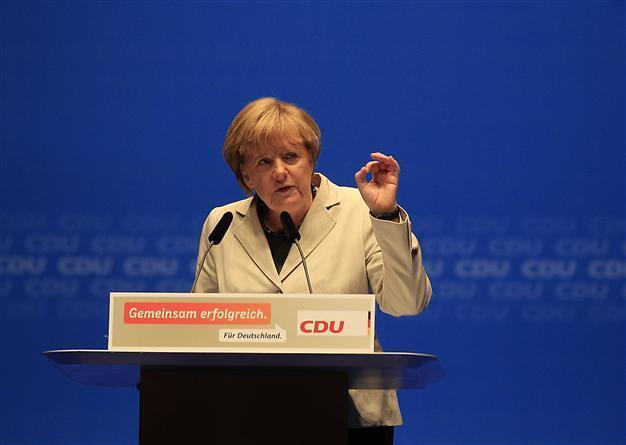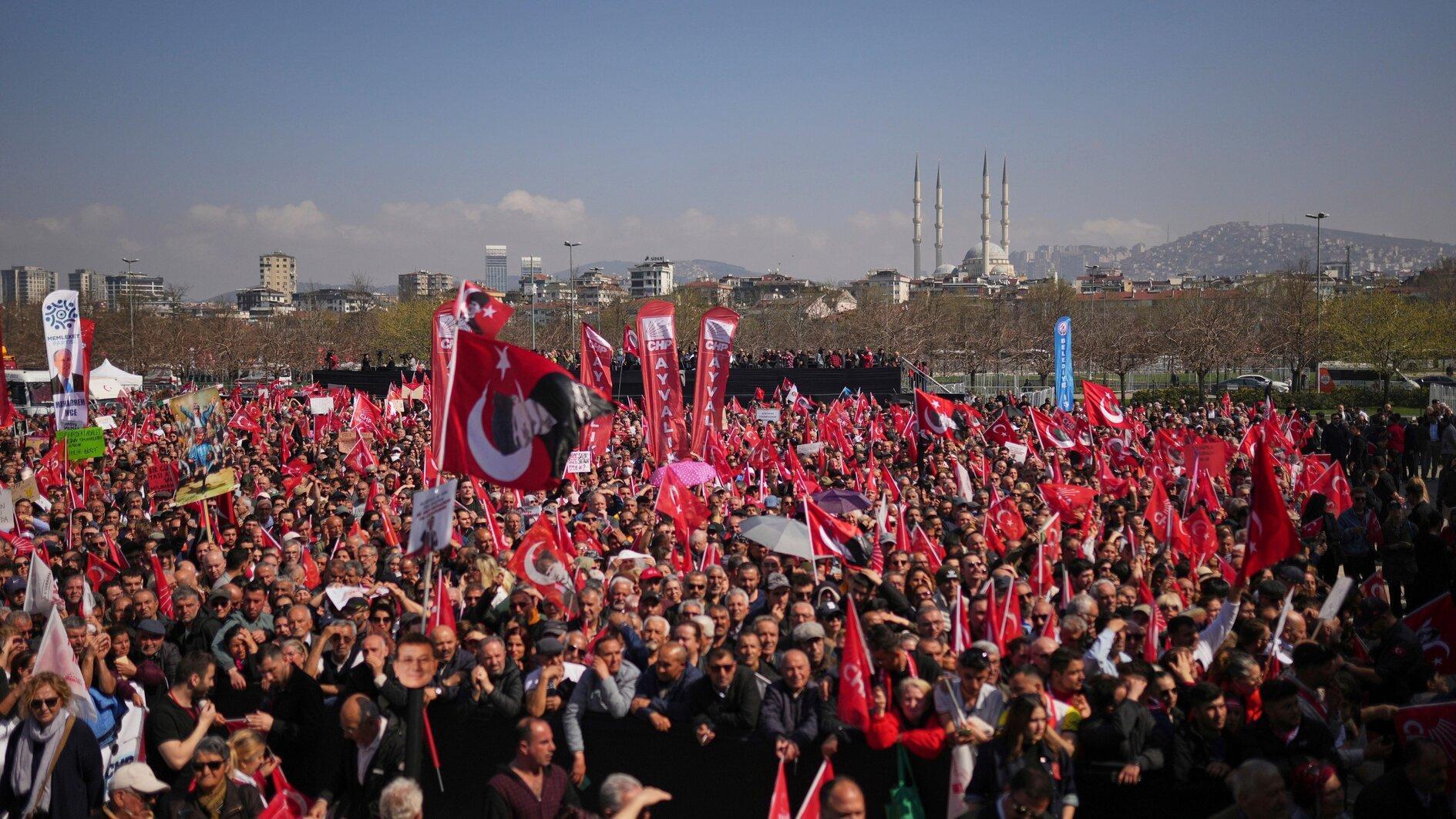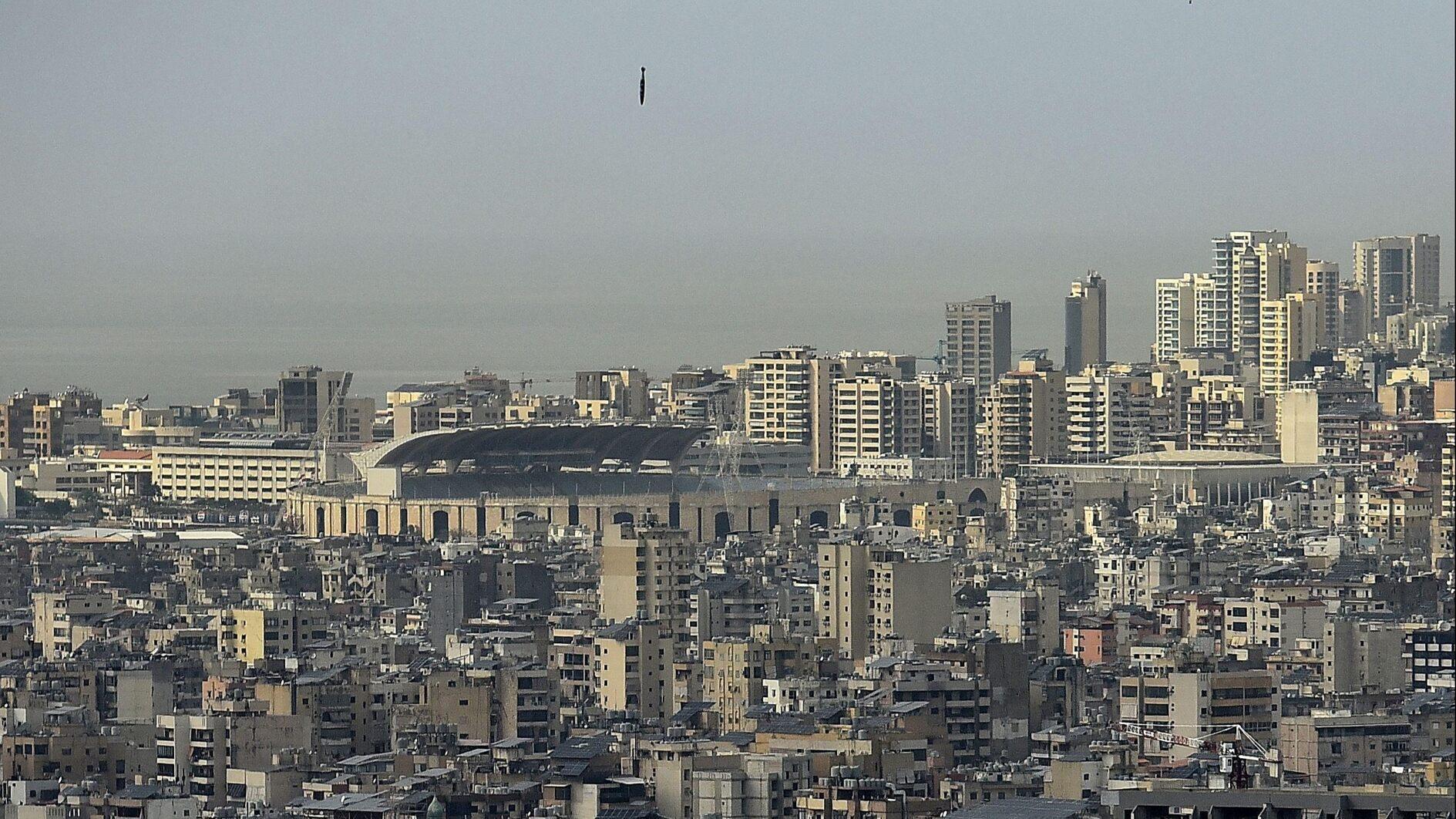Merkel faces election scrap over German energy shift
BERLIN - Agence France-Presse

German Chancellor Angela Merkel addresses party members. AP Photo
German Chancellor Angela Merkel stunned the world in 2011 by deciding to scrap nuclear power for renewables, but as election day approaches, a fight has broken out over how to pay for the clean energy drive.The topic has become an issue in the run-up to the September 22 election as the added cost of the shift to Europe's top economy -- 20 billion euros ($27 billion) this year -- has translated into higher bills for Germany's consumers.
Generous state incentives for solar, wind and biogas have driven up prices, which are now among Europe's highest and set to rise 20 percent more next year, topping 1,000 euros annually for the average three-person household.
While the Green party's former environment minister Juergen Trittin once promised the policy would cost each citizen "no more than a scoop of ice cream," the current minister, Peter Altmaier, has said he could eat his way through "the entire ice cream menu" for the money now being spent.
In their one and only TV debate earlier this month ahead of the vote, Merkel clashed with her election rival, Peer Steinbrueck from the opposition Social Democrats (SPD), who called her handling of the policy -- known as the "Energiewende" -- "a disaster." Merkel said she was "more convinced than ever it was the right choice" in the light of Japan's ongoing struggle with its stricken reactors after the 2011 Fukushima disaster, which prompted her about-turn.
"The world is convinced: if anyone can manage it, it'll be the Germans. It's not easy, but we can do it and we will benefit from it in the long run as an export nation." But Steinbrueck charged that "the management of this energy transition is a disaster ... it is the biggest brake on investment we have." Both of the top candidates agreed on one point: that after the elections, they would take steps to bring down the cost of the ambitious and complex project, which Altmaier once dubbed "open heart surgery" on the national economy.
The cost of the energy shift stems from a law introduced by an SPD-Greens government in 2000 that guaranteed wind and solar farms -- many of which are community-run -- priority access to the grid and premium prices for 20 years.
As a result, Germany now produces a quarter of its electricity through renewables.
Though not known as a sun-kissed country, Germany now has the world's highest solar power capacity, mainly in the south, while the north is dotted with hundreds of wind farms.
More offshore windmills in the pipeline will generate output equivalent to eight nuclear plants.
The goal is to produce at least 35 percent of Germany's power from renewables by 2020 and raise the level to 80 percent by mid-century.
This would also cut air pollution and carbon emissions, wean the economy off energy imports and protect it from price swings.
Victim of its own success
But the policy has become a victim of its own success. While wholesale electricity prices have fallen -- in part due to a resurgence in cheap, dirty coal -- the green energy producers keep receiving their high guaranteed prices, sending overall energy bills ballooning.
Merkel's government has already cut incentives for solar power and wants to do the same for wind.
Opposition parties charge that the real problem is exemptions Merkel's government has awarded to more than 2,000 energy-hungry companies who successfully argued that paying more for the clean energy would harm their global competitiveness.
Trittin, a top Green party candidate in the election, has accused Merkel of wanting to "put the brakes on the energy transition so that coal and nuclear have a future in Germany and Europe." The Greens have proposed a new energy ministry to tackle all aspects of the mega-project, including massive delays in building new power lines that are opposed by many local residents.
Germany's biggest union, IG Metall, last month warned of a "catastrophe" in the energy sector as "electricity is becoming more expensive, CO2 emissions are on the rise, and supply security now depends on old lignite power plants." The union accused Merkel of endangering the clean energy drive and the 200,000 jobs that rely on it and demanded "a very large coalition of all political and social forces to end the paralysis in the energy transition".
















